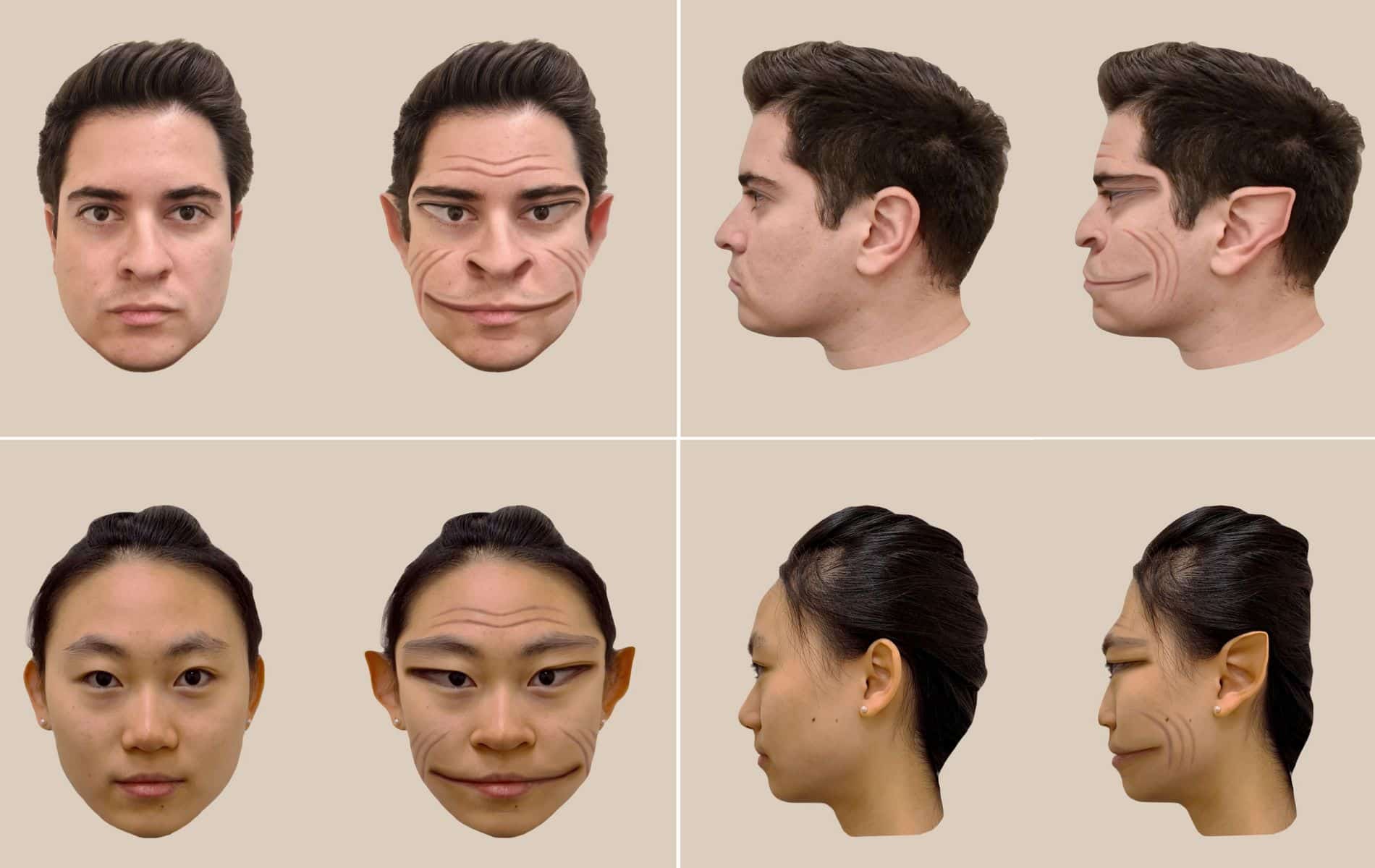The man in question suffers from a rather rare condition – called 'prosopometamorphopsia' – where faces are seen distorted (sometimes severely). What makes this man special is that he sees faces on paper or on screen as they are. This aroused the interest of scientists.
Prosopometamorphopsia is a condition in which people see faces distorted. For example, these people may perceive the shape, size, color, and also the position of facial features (such as the eyes, mouth, and nose) differently than they actually do. People can develop the condition more or less spontaneously, and then it can affect them for days, weeks, or sometimes even years.
Physically and on screen
Normally, for people with face blindness, all the faces they see are distorted. But scientists have now discovered a 58-year-old patient who has a distorted perception of the faces of people he encounters physically – their faces taking on devilish features, for example with eyes and mouth extended widely – but sees faces on screen or on paper as they are.
Opportunities
It's special. But not only that; It also provides opportunities. In this way, the patient allows researchers to reconstruct exactly what the man sees when he sees a troubled face. “In previous studies of this condition, patients with facial disfigurement were not able to evaluate how much the perception of their disfigurement now corresponds to what they see, because the perception is also an image of the face and therefore also distorted by the patients,” explains researcher Antonio Melo. But the 58-year-old patient, whom the researchers recently interviewed, sees the faces on the screen as they are, and can therefore judge well whether the perception of the disturbed face displayed on the screen matches the disturbed faces of the people he encounters physically in his perception.
Visualization
And so the researchers got to work. They took a photo of the person's face. They then put that person in the room with the 58-year-old patient, so that he physically met him and thus saw his face in a distorted way. At the same time, the patient was shown the image captured on the screen and had to describe how the (nondisturbed) face in the image differed from the (disturbed) face of the person he had met physically. The researchers then used computer software to adjust the image based on the differences reported by the patient so that it increasingly resembled the distorted face the 58-year-old patient saw when he looked at the person in real life. The result was a very accurate visualization of the distorted face that the patient saw.

scoop
Research – published in the journal The scalpel – Thus, it reveals very accurately how a patient with facial dysmorphia sees faces. This is the first time, according to researchers. It also gives us a unique insight into what patients with prosopometrial deformity have to deal with. Because it can be very scary to see (seriously) disturbed faces from one moment to the next. It was also initially uncomfortable for the 58-year-old, he told researchers. But now – he has been suffering from prosopagnosia for about 31 months – he is used to it. It is unclear what caused him to develop prosopometamorphism.
The researchers hope that their study will generate more interest in the phenomenon of prosopometamorphopsia. This is much needed; This condition is so rare that even specialists sometimes do not know what to do with it. “We have heard from many people with visual impairment who have been diagnosed with schizophrenia by psychiatrists and prescribed antipsychotics even though their condition represents a problem with the visual system,” researcher Brad Duchaine said. “It is also not uncommon for people with prosopagnosia to avoid telling others about their problems with facial perception because they fear that others will think their distorted perceptions indicate a psychological disorder. It is a problem that people often do not understand.”

“Lifelong food practitioner. Zombie geek. Explorer. Reader. Subtly charming gamer. Entrepreneur. Devoted analyst.”










More Stories
Revealing the ten countries that support Ukraine the most
Funny protest against mass tourism in Galician village
Kamala Harris has wind in her sails, but Trump can still win